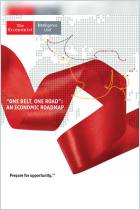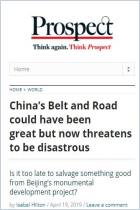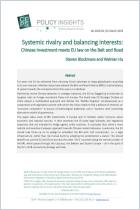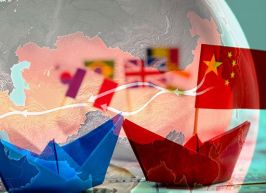Join getAbstract to access the summary!

Join getAbstract to access the summary!
Bruno Macaes
Belt and Road
The Sinews of Chinese Power
Hurst Publishers, 2018
What's inside?
China is gathering allies and cornering markets via its Belt and Road Initiative.
Recommendation
Like much about China, Beijing’s ambitious Belt and Road Initiative is mysterious. In this engaging analysis, political scientist Bruno Maçães argues that the details of China’s plan don’t matter as much as the big picture: China is flexing its economic muscle, with a goal of amassing further might. Maçães acknowledges that it’s possible that China and the West will figure out how to coexist peacefully. But, he allows, that’s not the only potential outcome. It’s also possible that tensions between China and the West will intensify as China seeks to broaden its role in the world.
Summary
About the Author
Bruno Maçães is a nonresident senior fellow at the Hudson Institute and a senior adviser at Flint Global. He served as Portugal’s Europe minister from 2013 to 2015. His previous book was The Dawn of Eurasia.


















Comment on this summary